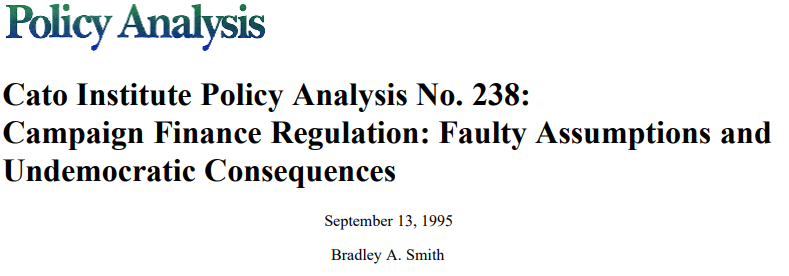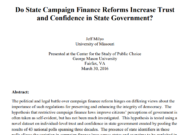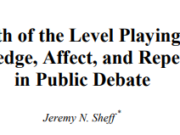Efforts to limit political contributions and spending are extremely popular. Yet there is no serious evidence that campaign finance regulation has achieved or will achieve its goals of reducing the influence of money, opening up the political system, and lowering the cost of campaigns. Indeed, since the 1974 amendments to the Federal Election Campaign Act, spending has risen sharply, the number of political action committees and the amount of PAC spending are up, and incumbents have increased both their reelection rate and the rate at which they outspend their challengers.
Efforts to limit contributions and spending have been based on faulty assumptions. Although it is often said that we spend too much on political campaigns, total spending for candidates for all offices is less than $10 per eligible voter every two years. Money is of much greater value to challengers than to incumbents, so higher spending opens up the political system to new people and ideas. Contrary to the assumption that large contributions are undemocratic is the reality that most challenges to the status quo and most working-class political movements have been financed by wealthy donors.
Our current campaign finance regulations favor incumbents, stifle grassroots activity, distort and constrict political debate, and infringe on traditional First Amendment freedoms. There is little reason to believe that still more regulation and public funding will yield positive results.
The framers of the Bill of Rights provided for the First Amendment to keep the government from attempting to limit political debate and criticism. We should recognize the wisdom of that decision and return to the system of campaign “regulation” that the Founders intended: “Congress shall make no law . . . abridging the freedom of speech.”
Read full text here














